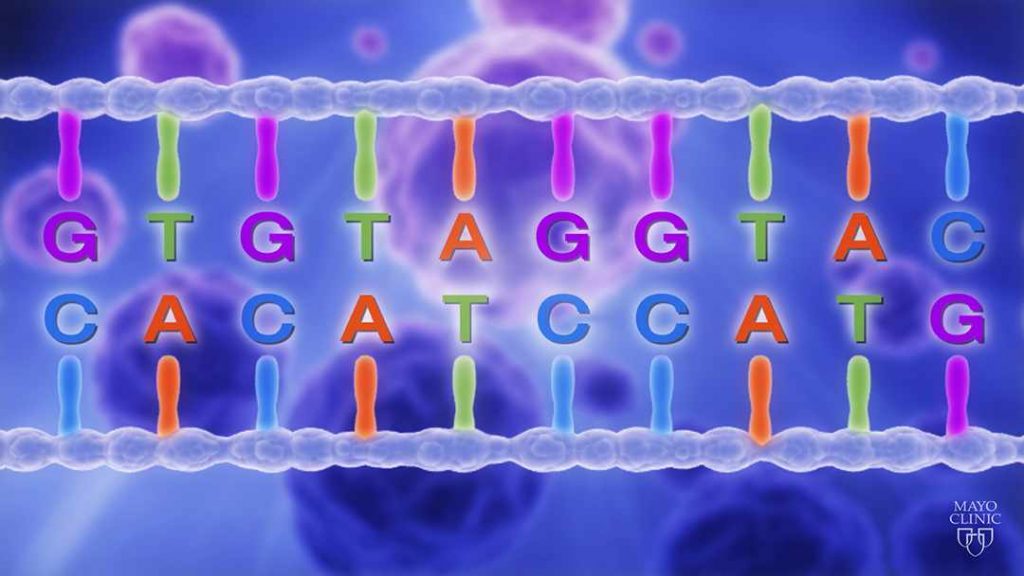-
Mayo Clinic Q and A: Health care to suit each person’s unique needs
 DEAR MAYO CLINIC: What do doctors mean when they talk about “personalized” medicine? How is personalized medicine connected to genetic testing?
DEAR MAYO CLINIC: What do doctors mean when they talk about “personalized” medicine? How is personalized medicine connected to genetic testing?
ANSWER: Personalized medicine (also called precision or individualized medicine) is a rapidly growing medical field. It focuses on improving the diagnosis, treatment and prevention of disease. The information health care providers use as a basis for individualized medicine is gathered, in large part, through clues found in a person’s genes.
In addition to determining your physical traits, such as eye color and height, your genes have an enormous impact on your health. Collecting information about your genes through genetic testing can provide you and your health care providers with valuable medical information.
There are several kinds of genetic testing available. Some tests are specific to inherited diseases and conditions that may be passed to you in your genes from your parents, such as cystic fibrosis or sickle cell anemia. Other genetic tests can check for genetic changes or variants (sometimes called mutations) that make it more likely you might develop a condition, such as breast cancer or harmful blood clots.
A newer kind of genetic test called whole-genome sequencing goes beyond individual medical conditions and provides detailed information about all of a person's genetic code. Along with data about health and medical care, whole-genome sequencing can reveal more information. Research is ongoing to better understand all the information held in the human genome.
You may have heard about direct-to-consumer genetic testing through radio, TV or internet advertisements. In this type of testing, a consumer provides a saliva or cheek swab sample to the company without a health care provider. Some companies offer carrier status, health traits, wellness, or ancestry/family origin information. These tests attempt to help consumers better understand how genes influence health and wellness, and may help them talk to their health care provider about conditions that can run in families. Some tests provide information for entertainment or enjoyment. It’s important to know the difference.
The information gathered through clinical genetic testing can offer valuable insight into how health care can be tailored to fit an individual’s specific health needs. One area where a considerable amount of research is being performed is in the way a person’s genetic makeup may affect how his or her body responds to certain medications.
For example, for the common prescription pain medication tramadol to work effectively, the body has to process it to an active form. If your body can’t process the medication due to your genetic makeup, you may not get pain relief from that drug. Another example of genetic testing helps identify a cancer tumor’s genomic profile — something like a fingerprint. Then, cancer therapies can be selected based on that tumor’s variants. This enables your health care provider to choose a medication that targets the tumor more effectively. When a health care provider has this type of genetic information, he or she can prescribe a medication to best meet that individual’s needs.
Although that example sounds straightforward, the connection between medication effectiveness and genes is — like most topics associated with genetics — quite complex and requires a great deal of research. Mayo Clinic researchers are exploring how the information gleaned from genetic testing can further inform the process of medication prescription.
Right now, individualized medicine is focused largely on customizing medical diagnosis, treatment and prevention based on a person’s genes. But, in time, the field is likely to progress beyond genetics. Research is underway that’s examining how the community of bacteria that live within a person — the microbiome — could affect certain diseases.
As individualized medicine moves forward, the goal is to personalize health care in such a way that each person receives optimal care that’s crafted to suit his or her unique situation and needs. Mayo Clinic is leading the translation of individualized medicine into practice. — Dr. Timothy Curry, Center for Individualized Medicine, Mayo Clinic, Rochester, Minnesota







